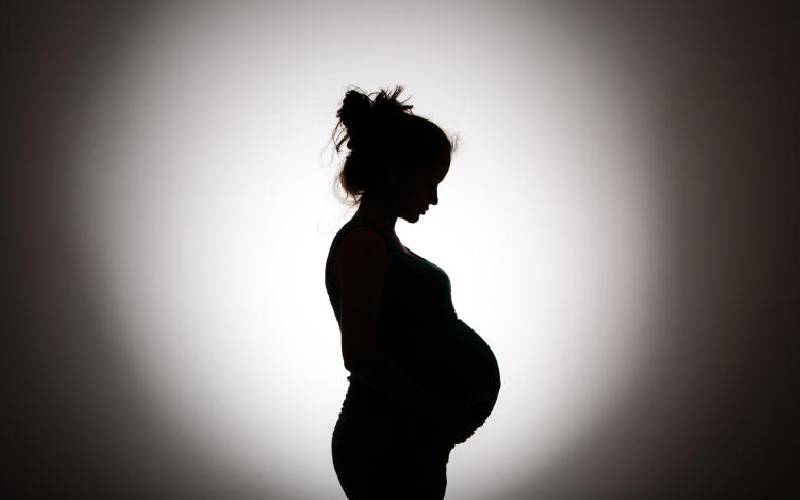
Cynthia Akinyi, 20, got pregnant at the age of 17 when she was still in school.
Growing up in Kibra, she had dreams of one day becoming a nurse but somehow it started fizzling after Standard Eight. Her mother would not afford to take her to secondary school.
“My aunt asked my mother to allow me to go stay with her in Kayole and she would take me to school; little did I know I would be turned into a house help,” she explains.
Akinyi worked for a year for her aunt whom she says had a young
child and she managed to make friends who introduced her to boys and she got pregnant.
Her aunt then threw her out and her mum also
disowned her. She had to go back to the village in Siaya and stay with her grandmother until she delivered.
Her boyfriend who was a mechanic sent her fare to come back to Nairobi and they stayed together. However, problems started and the man wanted out.
Akinyi says, “He told me that he was going to the village for some time and will tell me when he comes back so I should go and live with my mum.”
When she went, she was informed that the man had relocated and nobody had an idea where he had gone. This was the beginning of her journey as a single mother. Two years on, Akinyi and her child stay with her mother.
She shared her story as the world marked the International Day of the
Girl Child on Friday. The day is commemorated every year on October 11. The day was first
commemorated 25 years ago in a conference that culminated in the adoption of the Beijing Declaration and Platform for Action.
The day seeks to push for equal opportunity as well on the expansion of rights on issues such as sexual reproductive health rights. Some of the issues that still came up during the celebrations included early marriage, female genital mutilation and gender-based violence.
The Kenya Demographic and Health Survey (KDHS) 2014 shows that one in five girls in Kenya, aged 15 to 19, is already pregnant or has already had a baby. Fear is that the Covid-19 pandemic could have exacerbated this problem which Kenya has grappled with perenially.
Vilma Nyamongo from the Centre for the Study of Adolescence (CSA) said some of the challenges are still persistent mainly due to the lack of enough investment in these programmes.
Budgetary allocations have often seen drops going to such programmes. But through the
Girls Voices Initiative, the CSA has managed to train 48 girls in Kajiado to be advocates against FGM, early marriage and teenage pregnancy.
One of such girls who have become advocates in Kajiado is Abby Nosim from Ol Kilorito in Kajiado. She says growing up, she saw harmful practices affect girls her age.
“My age-mates are mothers, some with four children and this tells you why more attention needs to be given to the girl child,” she said.
Lobby groups also argue that a lack of resources has impacted significantly by causing a lack of essential institutions like safe houses. Esther Kimani of Zamara Foundation which works with girls and women to ensure they have voices and choices, says such houses would help more girls in danger to reach their potential.
Apart from sexual and gender-based violence, she pointed out sexual reproductive rights as one of the areas where girls and women are yet to enjoy their full rights. Statistics show in Kenya 45 per cent of women aged between 15 and 49 have experienced physical violence while 14 per cent have been subjected to sexual violence.
“We need to implement the existing policies like the reproductive health bill to allow girls and
women to achieve full sexual and reproductive health rights,” says Kimani.
Fact‑first reporting that puts you at the heart of the newsroom. Subscribe for full access.
- Unlimited access to all premium content
- Uninterrupted ad-free browsing experience
- Mobile-optimized reading experience
- Weekly Newsletters
- MPesa, Airtel Money and Cards accepted
